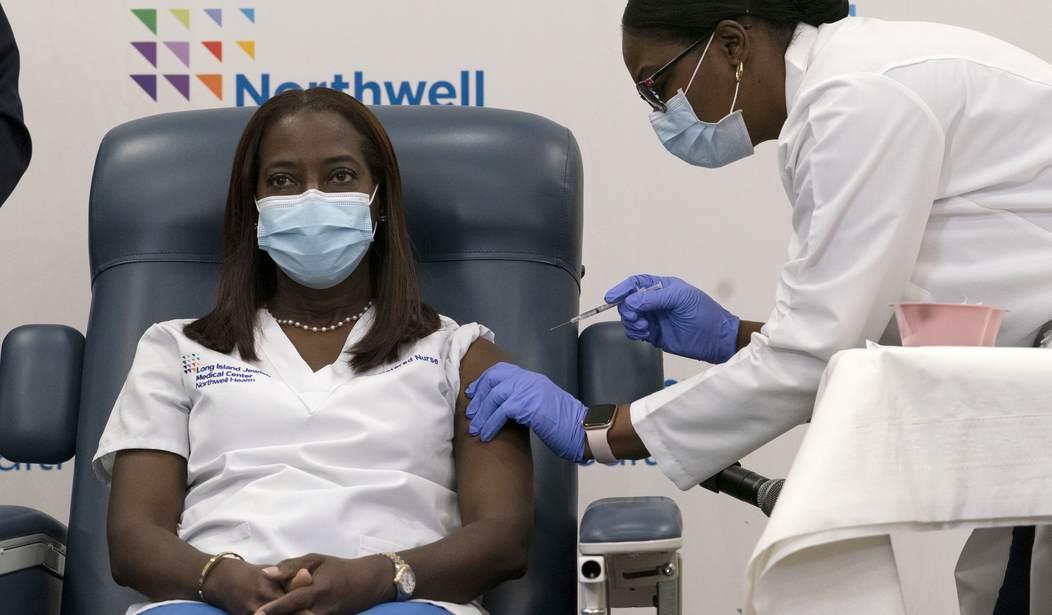Nurses have been a critical part of our country’s COVID response. Lying in a hospital bed, looking beyond a respirator mask, every patient hopes to find one of these healthcare heroes looking over them.
Nursing is one of the most trusted professions in the United States, and rightly so. Due in large part to the Nursing Code of Ethics that they adhere to, this modified vow, similar to the medical doctors' Hippocratic Oath, pledges autonomy, beneficence, justice and non-maleficence. It is exactly what a patient would want and need. Unfortunately, during today’s pandemic, unions are pushing nursing almost beyond limits and testing the Nursing Code of Ethics and correspondingly, treatment for patients.
Historically, unions have played an important role in bridging the gap between industry magnates and disenfranchised workers. They gave an avenue for grievances to be addressed and argued for higher wages, but their necessity has dwindled in recent years.
A tight labor market and historic nursing shortage has resulted in pay for nurses growing faster than the national average. And while unionized nurses make 19% more on average versus their nonunionized counterparts, much of that difference is offset by union dues and accounted for by the fact that many unionized nurses are located in states, such as California and New York, where the cost of living is higher.
Furthermore, social media and 24-hour news cycles have provided nurses with much easier avenues to highlight workplace issues. Accordingly, employers have made significant strides in recent years in instituting procedures to properly address employee grievances. As a result of all these developments, union bosses are left with few ways in which they can try to add value.
Recommended
The stakes could not be higher because for union leadership because healthcare is a cash cow. Nursing unions play a significant role in healthcare, representing 20.4% of nurses and each member pays about $90 in monthly dues. Often led by labor lawyers unfamiliar with healthcare procedures, these unions feast on approximately $1.3 Billion in annual dues and use the threat of labor unrest to justify their existence. That is not a healthy environment during the stress of a pandemic.
So, how have union leaders attempted to remain relevant during the pandemic? The largest association of registered nurses in the country, National Nurses United (NNU), has threatened several strikes across the country in an attempt to secure higher wages and has simultaneously blamed hospitals for staffing shortages instead of trying to work with the healthcare industry to find ways to alleviate the issue.
Were NNU to ultimately call a strike, nurses could not go to their healthcare facilities but would instead have to stay home or walk a picket line with signs produced by the union. The union would then create a list of grievances and/or ask for higher wages while the sick and dying linger in hospital beds. How does that fit into the Nursing Code of Ethics? Clearly, the vow doesn’t apply to the labor lawyers that run the nursing unions but what about the unionized nurses who would be forced to strike? They would be faced with the difficult choice of upholding their vow or defying their union.
Daily, lives are saved in our hospitals where nurses provide care. But pandemic demands have stretched and stitched the system. Last year nineteen hospitals were closed because they could not meet the policy and financial challenges to their operations. Such closures are but a symptom of the broader ailment afflicting hospitals.
Putting aside labor shortages, hospitals across the nation are struggling to deal with diminishing finances due to reductions in federal funding, fewer selective, non-life-threatening surgeries, a backlog of challenged Medicare and Medicaid payments, increased cost of Personal Protection Equipment (PPE) and the additional benefits provided to workers because of the pandemic. Last year it was estimated the hospital system lost an average of $50.7 Billion per month and this year’s projections are up to losses of another $122 Billion. These mounting hospital financial losses make demanding higher wages untimely and likely unattainable, leaving the threat of a prospective union work stoppage.
With all the challenges hospitals are facing, none are of the magnitude to place nurses in a position of violating their own healthcare vows. It is hard to surpass the caring within the heart of a nurse and none of them should have to choose between patient care and satisfying union leadership. Clearly, hospitals and patients need more caring licensed nurses and better funding to cope with pandemic struggles, both of which must be a higher priority for our nation.
Todd Tiahrt is a former Member of Congress who served on the Labor, Health and Human Services, Education, and Related Agencies Subcommittee of the House Appropriations Committee

























Join the conversation as a VIP Member